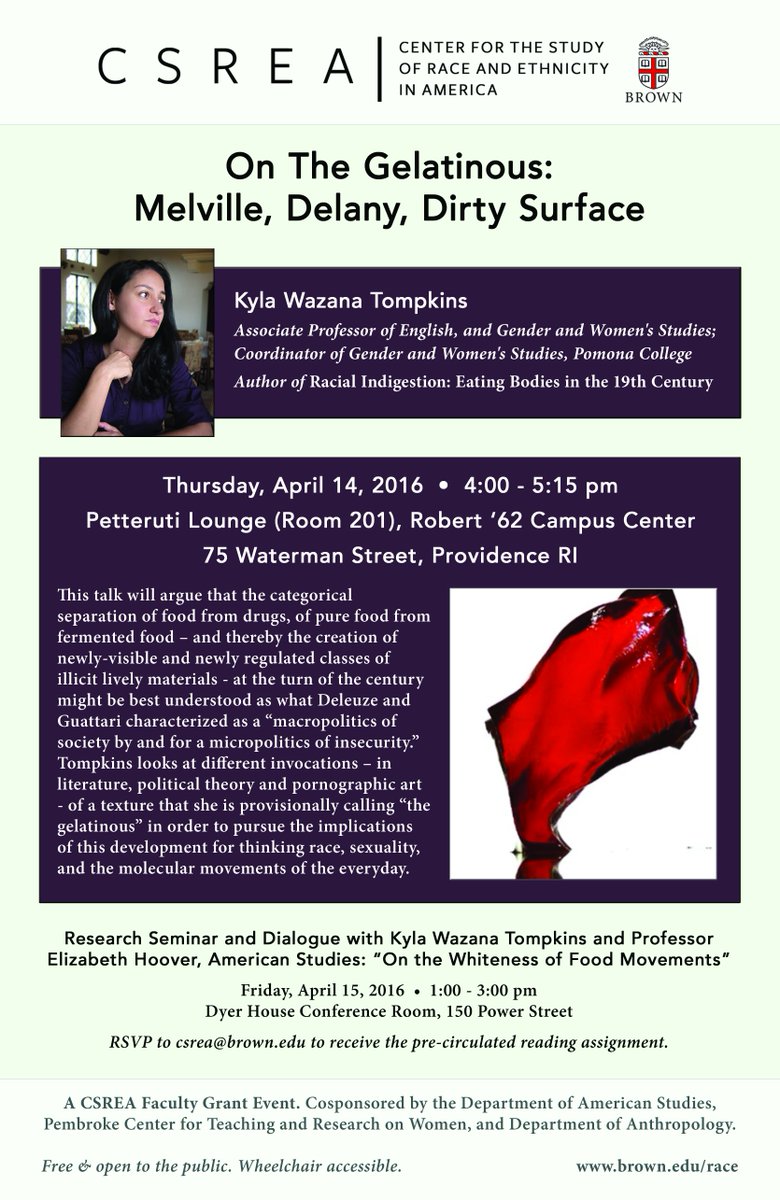
Petteruti Lounge, Stephen Robert '62 Center
Food entered the sphere of the juridical on a significant scale at the turn of the U.S. twentieth century, with the passage of the Food and Drug Act of 1906 and the Narcotics Act of 1914. This talk will argue that the categorical separation of food from drugs, of pure food from fermented food – and thereby the creation of newly-visible and newly regulated classes of illicit lively materials - at the turn of the century might be best understood as what Deleuze and Guattari characterized as a “macropolitics of society by and for a micropolitics of insecurity.” Tompkins looks at four different invocations – in literature, political theory and pornographic art - of a texture that she is provisionally calling “the gelatinous” in order to pursue the implications of this development for thinking race, sexuality, and the molecular movements of the everyday.
Free and open to the public. Book sale and signing to follow.
A CSREA Faculty Grant Event: Ralph Rodriguez, Associate Professor of American Studies, Associate Professor of English
Cosponsored by the Department of American Studies, Pembroke Center for Teaching and Research on Women, and the Department of Anthropology.
|
Kyla Wazana Tompkins Kyla Wazana Tompkins is a former food writer and restaurant critic. Today, as a scholar of 19th-century U.S. literature with a continuing interest in the relationship between food and culture, she writes about the connections between literature and a wide range of topics: food, eating, sexuality, race, culture, film and dance. Her 2012 book, Racial Indigestion: Eating Bodies in the Nineteenth Century, received the 2012 Lora Romero First Book Publication Prize from the American Studies Association and tied for the Best Book in Food Studies Award, presented by the Association for the Study of Food and Society |
